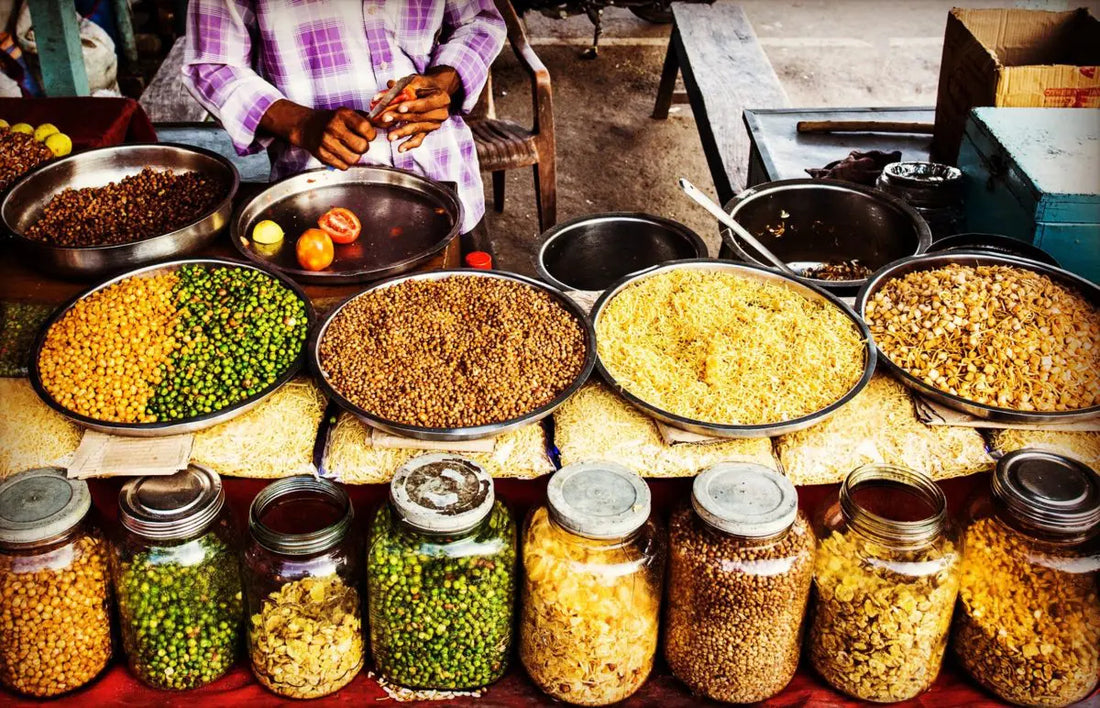Bloating is the result of gas or fluid accumulating in your GI tract, or when bacteria in your large intestine have a hard time breaking down certain foods. If you’re feeling sluggish, crampy, heavy, and tired, it would be good to consider what foods in your diet could be causing the bloating.
What are FODMAPS?
FODMAPS are naturally found in a wide range of foods. They are a group of fermentable short-chain carbohydrates that are either indigestible in the gut due to the absence of appropriate hydrolases, or slowly absorbed in the small intestine.
They are comprised of:
- Indigestible oligosaccharides that include fructo-oligosaccharides (fructan) – found in garlic, wheat, rye, barley, and onions
- Galacto-oligosaccharides (GOS) – found in legumes, nuts, soybeans, and other soy products
- Lactose, a disaccharide that won’t be absorbed if undigested by lactase – found in milk and yogurt
- Fructose, a monosaccharide when in excess of glucose – found in fruits like apples, pears, mangos, watermelon, and honey
- Polyols, or sugar alcohols, include sorbitol found in apricots, avocado, and lychee
Foods That Cause Bloating and What to Eat Instead
It is crazy to think that some of the healthiest foods for us are the culprits in causing our uncomfortable stomach bloats. Thankfully, there are always other options to consider. Here are some foods that cause bloating and what to eat instead.
Onions
Onions are a high FODMAP food because they contain fructans, which are a fructo-oligosaccharide. Places in Asia or people who love Asian food might struggle with this one as it is used widely in many dishes along with garlic, another high FODMAP food. Even when eaten in small amounts, this fragrant food has been linked to other digestive symptoms like acid reflux and indigestion.
Scallions and shallots may seem like good alternatives, but they aren’t recommended since they are closely related to the onion family. Especially for those on a paleo diet, we know onions add great flavor to dishes, so we don’t want to leave them out. Try cooking with onion-infused oils like extra virgin olive oil, which is less likely to cause digestive problems.
Apples
Wait, I thought an apple a day keeps the doctor away? We know that apples are beneficial in many ways, but apples are high in fructose, which is a monosaccharide, which makes it a high FODMAP food. The high fiber content may also make it difficult for some people to digest. Because of all its nutrients, vitamins, and minerals, apples aren’t a food I would choose to opt out of, but if you have digestive problems, it may be worth considering if this is something you consume a lot of.
Try berries, cantaloupe, grapes, or bananas instead. If you absolutely can’t give up apples, try making apple sauce to help make it easier to digest.
Carbonated drinks
We all know how bad sodas are for our body. They typically contain too much sugar, have no nutritional value, and contain a lot of carbon dioxide, which is a gas, making it a common cause of bloating. When you drink a soda, you are also swallowing large amounts of this gas that gets trapped in the digestive system, which could even cause cramping.
Water is always the best drink to turn to, but if you love the flavor, try fruit-infused water, tea, coffee, or fresh-squeezed juice.

Broccoli and other cruciferous vegetables
Cruciferous vegetables like kale, cabbage, cauliflower, and broccoli, cause gas and bloating when eaten raw. I don’t like eating any of these vegetables raw, so thankfully I don’t have this problem, but for those who do, understand that the extremely high amount of fiber can be difficult for your body to break down. Additionally, these foods contain raffinose, which is a sugar molecule under the FODMAP umbrella.
One might think if you can’t even eat broccoli, what can you eat?! So you don’t have to exclude these foods from your diet, because they provide a substantial amount of vitamins and minerals, while helping to balance hormones. But you could steam them to soften them up, or blend them into a soup.
Other foods that cause bloating include:
- Sugar alcohols. Try stevia or 100% pure maple syrup.
- Garlic. Try chives.
- Beans and legumes. Try organic grass-fed meat or eggs.
- Grains. Try spiralized zucchini in place of pasta or quinoa in place of rice.
- Mushrooms. Try sauteed zucchini.
- Dairy. Try nut milks (almond, cashew), coconut milk, or hemp milk.
Let us know what foods have caused bloating in the past!

 Log in
Log in

